Search
Search Results
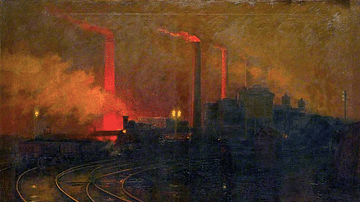
Definition
British Industrial Revolution
The British Industrial Revolution (1760-1840) brought innovative mechanisation and deep social change. The process saw the invention of steam-powered machines, which were used in factories in ever-growing urban centres. Agriculture remained...
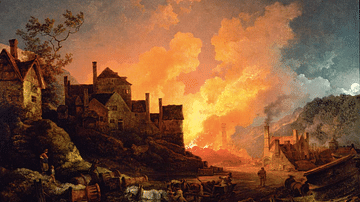
Article
Why the Industrial Revolution Started in Britain
The Industrial Revolution saw a wave of technological and social changes in many countries of the world in the 18th and 19th centuries, but it began in Britain for a number of specific reasons. Britain had cheap energy with its abundant supply...
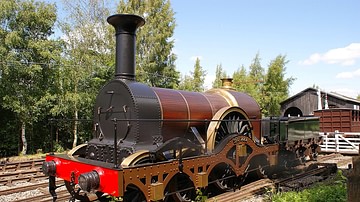
Article
The Railways in the British Industrial Revolution
The railways were perhaps the most visible element of the Industrial Revolution for many. Trains powered by steam engines carried goods and people faster than ever before and reached new destinations, connecting businesses to new markets...

Video
Introduction to the British Industrial Revolution
Did you know that the industrial revolution in Britain is referred to as the first industrial revolution, since that is where it happened first? The British Industrial Revolution was a period of both innovative mechanisation and deep social...
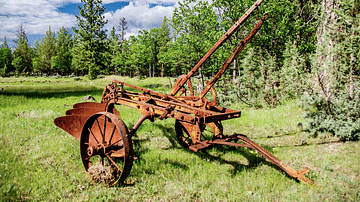
Article
Agriculture in the British Industrial Revolution
Agriculture, like most other areas of working life, was greatly affected by the machines invented during the Industrial Revolution. Agriculture in Britain and elsewhere had made leaps forward in the 18th century, and its success released...
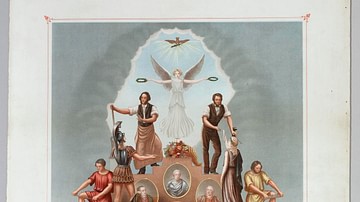
Article
Trade Unions in the British Industrial Revolution
Trade unions were formed in Britain during the Industrial Revolution (1760-1840) to protect workers from unnecessary risks using dangerous machines, unhealthy working conditions, and excessive hours of work. The trade union movement was vigorously...
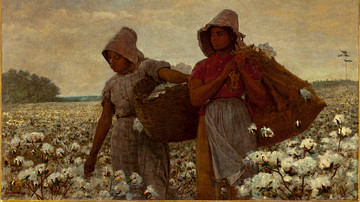
Article
Slavery in Colonial America
Slavery in Colonial America, defined as white English settlers enslaving Africans, began in 1640 in the Jamestown Colony of Virginia but had already been embraced as policy prior to that date with the enslavement and deportation of Native...

Article
Pets in Colonial America
Pets in Colonial America were kept by the colonists for the same reasons they were in Europe: for companionship and, in the case of dogs, for protection, hunting, and herding. Cats controlled vermin in homes and barns until the 18th century...

Article
The Wyndclyffe Estate
There are many fascinating and forlorn ruins throughout New York’s Hudson Valley, and, among them, the tottering remains of what was once considered the grandest home in the area and among the most famous in the country: Wyndclyffe. Between...

Article
The Gilded Age Estates of Staatsburg, New York
The great estates of the Gilded Age were more than lavish displays of wealth for the American aristocracy c. 1870-1917, they supported the economy of the local communities and encouraged development. As they declined, many of the surrounding...